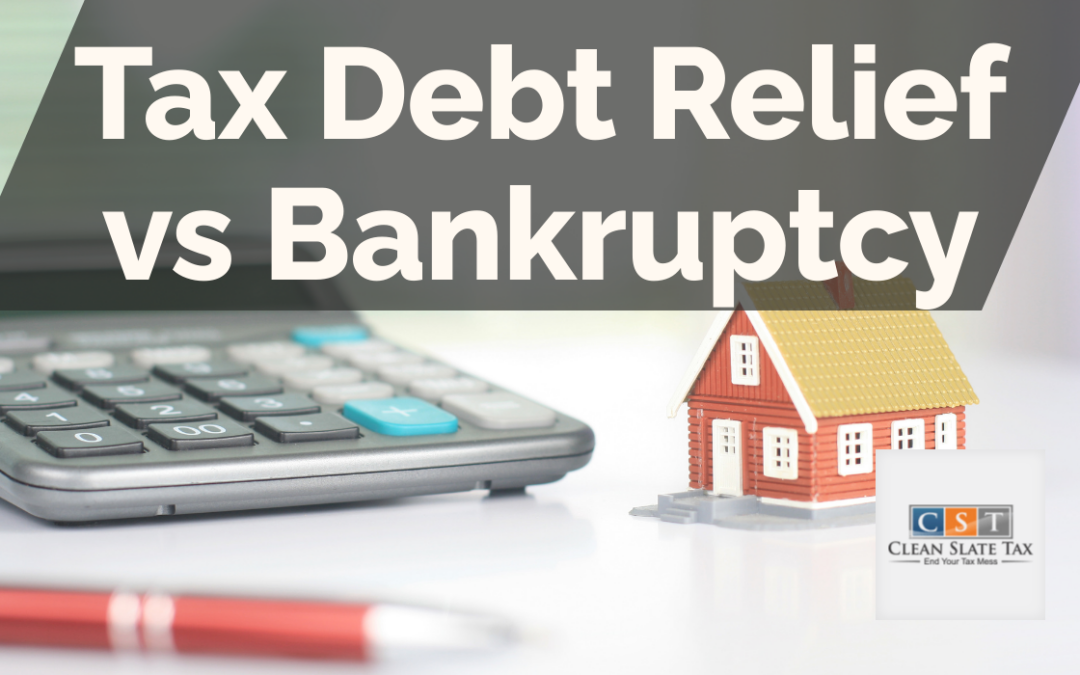Tax Debt Relief vs Bankruptcy: Which One is Best for You?
Owing to the increasing cost of living, it is common for people to find themselves in debt. However, when it comes to paying off debt, it can be challenging to decide on the best course of action. Two common debt-relief options people consider are tax debt relief and bankruptcy. In this article, we will compare and contrast tax debt relief and bankruptcy to help you make an informed decision on which option is best for you.
What is Tax Debt Relief?
Tax debt relief is a program that helps tax debtors reduce their tax debt to the Internal Revenue Service (IRS) or state tax agencies. The program offers various options, such as installment agreements, offers in compromise, and penalty abatement to enable taxpayers to pay their debts in a manageable manner.
What is Bankruptcy?
Bankruptcy is a legal process where individuals or businesses that are unable to pay their debts can seek relief from them. The process enables debtors to either eliminate or repay their debts, depending on the type of bankruptcy they file. Chapter 7 and Chapter 13 are the most common forms of bankruptcy filed by individuals.
How Do Tax Debt Relief and Bankruptcy Differ?
While tax debt relief and bankruptcy may seem similar, they have significant differences. Here are some of the differences:
- Nature of Debt: Tax debt relief only applies to tax debt owed to the IRS or state tax agencies, while bankruptcy applies to all forms of debt.
- Eligibility: Tax debt relief is available to taxpayers who owe a specific amount of tax debt, while bankruptcy is available to any debtor who meets the requirements to file for bankruptcy.
- Impact on Credit Score: While both tax debt relief and bankruptcy can have a negative impact on your credit score, tax debt relief may have a milder impact. In contrast, bankruptcy usually has a severe impact on your credit score that can last up to ten years.
- Time to Resolution: Tax debt relief can take a few months to years to resolve, depending on the type of relief sought. In contrast, bankruptcy typically takes several months to resolve.
- Cost: Tax debt relief may be less expensive than bankruptcy, especially if you can negotiate with the IRS to reduce your tax debt. However, bankruptcy involves legal fees and court costs that can be costly.
Which Option is Best for You?
Deciding whether to pursue tax debt relief or bankruptcy largely depends on your financial situation and the type of debt you owe. If you owe mainly tax debt, tax debt relief may be the best option for you. It will allow you to pay off your tax debt in a manageable way without severely impacting your credit score.
On the other hand, if your debt is not solely tax-related, and you have a considerable amount of debt that you cannot repay, bankruptcy may be the best option for you. It will enable you to either eliminate your debts or restructure them in a way that allows you to pay them off over time.
Frequently Asked Questions
Can I File Bankruptcy for Tax Debt?
Yes, you can file bankruptcy for tax debt, but only specific types of tax debt are eligible for discharge. Taxes that are dischargeable in bankruptcy must meet specific criteria, such as being income tax debt that is at least three years old and having been assessed at least 240 days before filing for bankruptcy.
Can I Qualify for Tax Debt Relief?
Qualifying for tax debt relief depends on several factors. To determine whether you are eligible for tax debt relief, you need to review the various tax relief programs offered by the IRS or state tax agency and determine which one best suits your financial situation.
What is the Long-term Impact of Bankruptcy on my Credit Score?
The long-term impact of bankruptcy on your credit score depends on several factors, such as your credit history and financial habits. Generally, bankruptcy can have a severe impact on your credit score, and it can take up to ten years to recover from it.
How Much Does Tax Debt Relief Cost?
The cost of tax debt relief depends on the type of relief sought, the amount of debt owed, and whether you hire a tax professional to assist you with the process. Some tax relief programs may not cost anything, while others have fees associated with them.
Can I Keep My Assets in Bankruptcy?
The answer to this question depends on the type of bankruptcy you file. Chapter 7 bankruptcy involves the liquidation of assets to pay off your debts, while Chapter 13 allows you to keep your assets but requires you to repay your debts over time.
In conclusion, choosing between tax debt relief and bankruptcy requires careful consideration of several factors, such as the type of debt you owe, your financial situation, and the impact of each option on your credit score. It is always advisable to seek professional advice before making a decision.





